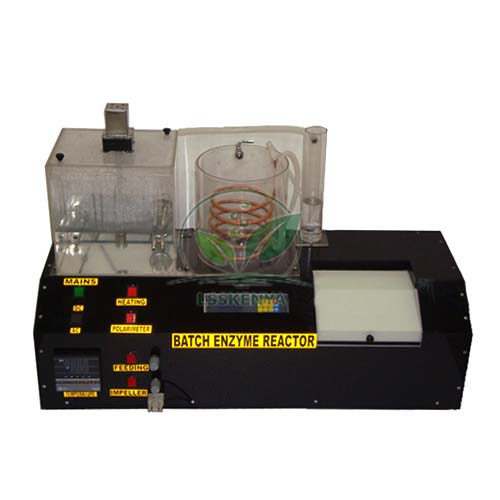Batch Enzyme Reactor Manufacturer,Supplier and Exporter in India

Product Code : LSK-TWL-10801

Product Code : LSK-TWL-10801
©2025 Lss keynya. All Right Reserved
Lss Kenya has regular exports of Educational Scientific Instruments, School Laboratory Scientific Equipment , Biology Lab Equipment Manufacturer In India ,Physics Lab Equipment Manufacturer, Chemistry Lab Equipment , Microscopes Laboratory Equipment , Biology Lab Equipment Manufacturers , Physics lab Equipment Manufacturer , Lab Equipment Manufacturers in India , Electronics Lab Trainer, Mechanical Engineering Lab Equipment Manufacturer ,Civil Engineering Lab Equipment,Engineering Lab Equipment Mnaufacturer , Electronic Lab Equipments , Biology Lab Equipment,School Lab Equipments Manufacturers ,Educational Lab Equipments Manufacturers, Educational Lab Equipments , Maths Lab Kit Instruments/a>, Physics Lab Instruments,Lab Glassware Manufacturer,Scientific Lab Glassware,Scientific Lab Instruments, Medical Monitoring System and Physiotherapy Equipment for Schools, Colleges, University & Research Labs. Educational Lab Instruments for the following countries: India, Algeria (Algiers), Andorra (Andorra la Vella), Angola (Luanda), Anguilla (BOT) (The Valley), Antigua and Barbuda (Saint John's), Argentina (Buenos Aires), Armenia (Yerevan), Australia (Canberra), Austria (Vienna), Azerbaijan (Baku), Bahrain (Manama), Bangladesh (Dhaka), Barbados (Bridgetown), Belarus (Minsk), Benin (Porto-Novo), Bhutan (Thimphu), Bolivia (Sucre), Bonaire (Netherlands) (Kralendijk), Bosnia and Herzegovina (Sarajevo), Botswana (Gaborone), Brazil (Brasília), Brunei (Bandar Seri Begawan), Montenegro (Podgorica), Morocco (Rabat), Mozambique (Maputo), Myanmar (Naypyidaw), Namibia (Windhoek), Nepal (Kathmandu), New Zealand (Wellington), Nicaragua (Managua), Nigeria (Abuja), Oman (Muscat), Palestine (Ramallah), Panama (Panama City), Papua New Guinea (Port Moresby), Paraguay (Asunción), Peru (Lima), Philippines (Manila)¸ Portugal (Lisbon), Qatar (Doha), Romania (Bucharest), Rwanda (Kigali), Samoa (Apia), Saudi Arabia (Riyadh), Senegal (Dakar), Serbia (Belgrade), Seychelles (Victoria), Sierra Leone (Freetown), Slovakia (Bratislava), Somalia (Mogadishu), South Africa (Cape Town) (Pretoria) (Bloemfontein), South Sudan (Juba), Spain (Madrid), Sri Lanka (Sri Jayawardenepura Kotte) (Colombo), Sudan (Khartoum), Syria (Damascus), Tanzania (Dodoma), Thailand (Bangkok), Togo (Lomé), Tonga (Nuku'alofa), Trinidad and Tobago (Port of Spain), Tunisia (Tunis), Turkey (Ankara), Turkmenistan (Ashgabat), Uganda (Kampala), United Arab Emirates (Abu Dhabi), United Kingdom (London), United States (Washington, D.C.), Uruguay (Montevideo), Uzbekistan (Tashkent), Venezuela (Caracas), Vietnam (Hanoi), Yemen (Sana'a), Zambia (Lusaka), Zimbabwe (Harare), Eswatini (Mbabane) (Lobamba), Ethiopia (Addis Ababa), Fiji (Suva), Gabon (Libreville), Gambia (Banjul), Georgia (Tbilisi), Ghana (Accra), Gibraltar (BOT) (Gibraltar), India (Delhi, Mumbai, Kolkatta, Chennai), Indonesia (Jakarta), Iraq (Baghdad), Ivory Coast (Yamoussoukro), Jamaica (Kingston), Jordan (Amman), Kazakhstan (Astana), Kenya (Nairobi), Kiribati (Tarawa), Kosovo (Pristina), Kuwait (Kuwait City), Kyrgyzstan (Bishkek), Laos (Vientiane), Latvia (Riga), Lebanon (Beirut), Lesotho (Maseru), Liberia (Monrovia), Libya (Tripoli), Lithuania (Vilnuis), Luxembourg (Luxembourg), Malawi (Lilongwe), Malaysia (Federal Territory of Kuala Lumpur), Maldives (Malle), Mali (Federal Territory of Kuala Lumpur), Malta (Male), Mauritania (Nouakchott), Mauritius (Port Louis), Mexico (Mexico City), Moldova (Chişinău), Monaco, Mongolia (Ulaanbaatar), Bulgaria (Sofia), Burkina Faso (Ouagadougou), Burundi (Gitega), Cambodia (Phnom Penh), Cameroon (Yaoundé), Cape Verde (Praia), Central African Republic (Bangui), Chad (N'Djamena), Chile (Santiago), Colombia (Bogota), Comoros (Moroni), Congo (Kinshasa), Costa Rica (San José), Croatia (Zagreb), Cuba (Havana), Cyprus (Nicosia), Czech Republic (Prague), Denmark (Copenhagen) ,Djibouti (Djibouti City), Dominican Republic (Santo Domingo), DR Congo (Kinshasa), East Timor (Dili), Ecuador (Quito), Egypt (Cairo), El Salvador (San Sal